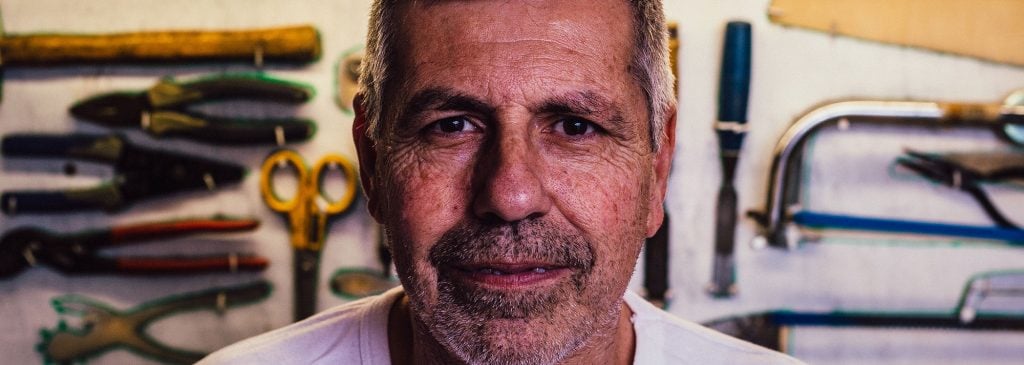Business
Raising the curtain on disability
05 July 2021
Business
05 July 2021

Money & Life contributors draw on their diverse range of experience to present you with insights and guidance that will help you manage your financial wellbeing, achieve your lifestyle goals and plan for your financial future.
No Strings is challenging traditional expectations and stereotypes, by showcasing the power of diversity and acceptance, where disability doesn’t define society.
Tracey Edwards CFP® – a director and financial adviser at FirstAdvice Solutions – is no stranger to community involvement. As a business, FirstAdvice Solutions participates in the Cancer Council’s Australia’s Biggest Morning Tea and its pro bono program, takes part in Dementia Australia’s Memory Walk and Jog, and collects goods for the Hutt St Centre, which helps people facing homelessness to rebuild their lives.
Tracey was first introduced to No Strings Attached Theatre of Disability (No Strings) through the not-for-profit’s Acting CEO, Kari Seeley, who Tracey has known for over 30 years.
The Adelaide-based No Strings is a world-class theatre company that works exclusively with performers living with disability. It produces award-winning productions with local, national and international tours that regularly tackle the barriers associated with disability.
Established in 1994 by performer, writer and entrepreneur, Helen Flinter Leach, No String’s mission is to lead the way in training, services and opportunities for disabled artists by creating world class theatre, and supporting members to develop career paths in the Performing Arts.
“We value entertainment and advocacy, individuality and community, unity and diversity. And we especially appreciate humour,” says Kari. “No Strings is leading the way to extend opportunities for people living with disability to access any role, at any level within the Performing Arts. We entertain while we empower, and we celebrate ability while being committed to excellence and innovation.”
At the heart of No Strings’ success in raising the curtain on disability is the organisation’s belief that for any artistic endeavour to be successfully and sustainably led by its own community, members of that community must be provided with the opportunities to identify their personal areas of interest within that art form, and build their skills and capacities in a supporting environment that sets them up for success.
“This includes building skills for roles beyond the stage,” says Kari. “We uniquely co-design our programs with participants, so all aspects are tailored to their individual interests and capacities, allowing for the greatest form of engagement and expression.”
To assist its performers, No Strings provides professional mentoring in a supportive environment, which helps artists to learn, grow, explore and reach their potential.
“Drama skills are life skills,” says Kari. “As people find their voice and develop their craft, they grow in leadership and independence, which creates exciting new employment pathways both on and off the stage.
“By letting ability shine through, we challenge expectations and educate society, so as to achieve true inclusion for all. No Strings showcases the power of diversity and acceptance. We are redefining disability, by breaking down barriers, raising our voices, and showing the world what people with disability are capable of achieving.”
Tracey recalls talking to Kari about a pilot project No Strings was working on. “Kari was concerned about the funding required for the pilot project, so I encouraged her to apply for a Future2 grant. I was excited to endorse the application and was thrilled when No Strings was awarded a $10,000 grant,” says Tracey.
The pilot program will enable No Strings to adapt high quality accredited training and skills development for people living with disability who want to pursue a career in the Arts sector.
The program, which will be targeted at No Strings’ participants aged 18 to 25, was developed and delivered in conjunction with Adelaide-based RTO, The Centre for People Development. The individually tailored program for up to five participants, consists of six weekly two-hour sessions, with an additional one-on-one individual Job Ready coaching session.
“We have already identified that many people who live with disability do not have adequate access to technology. We have therefore purchased a number of refurbished laptops, pre-loaded with the Office 365 suite, to enable all participants to have access to a laptop and suitable software throughout the training program,” says Kari.
Specific content covered in the program includes: learning how to build networks in the Performing Arts sector; how to develop a career plan; and how to develop a skills portfolio.
According to Kari, two of the key outcomes the program is aiming for, includes:
According to Kari, the skills development program will benefit participants considerably. They will develop new transferable skills, and be able to demonstrate their capacity to succeed in training, which includes: collaborating well with others; improved communication, reading and writing skills; developing new networks across the Creative Arts sector; identifying potential career opportunities; and maintaining their skills portfolio.
“This project supports young Australians who are financially and socially disadvantaged, through a lived experience of disability, by providing tailored, nationally accredited training that will help them to develop new skills that will increase opportunities for them to secure ongoing employment and a career in the Creative Arts,” says Kari.
“The dignity of paid productive work within their interest area – the Creative Arts – will provide sustainable financial independence and see them live productive, fulfilling lives in the community.
“The skills learnt through this individually-tailored skills training program will be easily transferrable to other areas of employment throughout their working life. This training will also help them develop leadership skills that they will bring to their broader disability community.”
Tracey confirms that the No Strings performers are not only talented but are also very proud of their work, with several performers already having been cast in international and national films.
“Being able to get a formal qualification allows these artists to feel more included in society, while enabling them to further develop their skills and career,” Tracey says.
While this small-scale pilot program is reasonably labour-intensive, due to the process of tailoring all content to the individual needs and capacities of the participants, Tracey is confident the program will challenge society’s traditional expectations of people living with disability.
“All the participants in the program are interested in developing skills to advance their career in the Creative Arts industry, beyond ‘just’ on-stage performance,” says Tracey. “Participants are excited to develop skills that will enhance their opportunities for securing paid work in the Creative Arts sector – something that is incredibly difficult to achieve without appropriate training and skills development.”
Following the completion of this pilot program, No Strings will undertake a review of the program and its outcomes, with a view to providing future opportunities for other participants to undertake this tailored program.
Kari adds: “As successful participants complete the first pilot program and secure employment in the Creative Arts industry in due course, their success will encourage more No Strings performers to undertake similar individualised, nationally accredited training.”
 | Raising the curtain on disability05 July 2021 No Strings is challenging traditional expectations and stereotypes, by showcasing the power of diversity and acceptance, where disability doesn’t define society. Tracey Edwards CFP® – a director and financial adviser at FirstAdvice Solutions – is no stranger to community involvement. As a business, FirstAdvice Solutions participates in the Cancer Council’s Australia’s Biggest Morning Tea and its pro bono program, takes part in Dementia Australia’s Memory Walk and Jog, and collects goods for the Hutt St Centre, which helps people facing homelessness to rebuild their lives. Tracey was first introduced to No Strings Attached Theatre of Disability (No Strings) through the not-for-profit’s Acting CEO, Kari Seeley, who Tracey has known for over 30 years. The Adelaide-based No Strings is a world-class theatre company that works exclusively with performers living with disability. It produces award-winning productions with local, national and international tours that regularly tackle the barriers associated with disability. Established in 1994 by performer, writer and entrepreneur, Helen Flinter Leach, No String’s mission is to lead the way in training, services and opportunities for disabled artists by creating world class theatre, and supporting members to develop career paths in the Performing Arts. “We value entertainment and advocacy, individuality and community, unity and diversity. And we especially appreciate humour,” says Kari. “No Strings is leading the way to extend opportunities for people living with disability to access any role, at any level within the Performing Arts. We entertain while we empower, and we celebrate ability while being committed to excellence and innovation.” At the heart of No Strings’ success in raising the curtain on disability is the organisation’s belief that for any artistic endeavour to be successfully and sustainably led by its own community, members of that community must be provided with the opportunities to identify their personal areas of interest within that art form, and build their skills and capacities in a supporting environment that sets them up for success. “This includes building skills for roles beyond the stage,” says Kari. “We uniquely co-design our programs with participants, so all aspects are tailored to their individual interests and capacities, allowing for the greatest form of engagement and expression.” To assist its performers, No Strings provides professional mentoring in a supportive environment, which helps artists to learn, grow, explore and reach their potential. “Drama skills are life skills,” says Kari. “As people find their voice and develop their craft, they grow in leadership and independence, which creates exciting new employment pathways both on and off the stage. “By letting ability shine through, we challenge expectations and educate society, so as to achieve true inclusion for all. No Strings showcases the power of diversity and acceptance. We are redefining disability, by breaking down barriers, raising our voices, and showing the world what people with disability are capable of achieving.” Future2 grantTracey recalls talking to Kari about a pilot project No Strings was working on. “Kari was concerned about the funding required for the pilot project, so I encouraged her to apply for a Future2 grant. I was excited to endorse the application and was thrilled when No Strings was awarded a $10,000 grant,” says Tracey. The pilot program will enable No Strings to adapt high quality accredited training and skills development for people living with disability who want to pursue a career in the Arts sector. The program, which will be targeted at No Strings’ participants aged 18 to 25, was developed and delivered in conjunction with Adelaide-based RTO, The Centre for People Development. The individually tailored program for up to five participants, consists of six weekly two-hour sessions, with an additional one-on-one individual Job Ready coaching session. “We have already identified that many people who live with disability do not have adequate access to technology. We have therefore purchased a number of refurbished laptops, pre-loaded with the Office 365 suite, to enable all participants to have access to a laptop and suitable software throughout the training program,” says Kari. Specific content covered in the program includes: learning how to build networks in the Performing Arts sector; how to develop a career plan; and how to develop a skills portfolio. According to Kari, two of the key outcomes the program is aiming for, includes:
Skills developmentAccording to Kari, the skills development program will benefit participants considerably. They will develop new transferable skills, and be able to demonstrate their capacity to succeed in training, which includes: collaborating well with others; improved communication, reading and writing skills; developing new networks across the Creative Arts sector; identifying potential career opportunities; and maintaining their skills portfolio. “This project supports young Australians who are financially and socially disadvantaged, through a lived experience of disability, by providing tailored, nationally accredited training that will help them to develop new skills that will increase opportunities for them to secure ongoing employment and a career in the Creative Arts,” says Kari. “The dignity of paid productive work within their interest area – the Creative Arts – will provide sustainable financial independence and see them live productive, fulfilling lives in the community. “The skills learnt through this individually-tailored skills training program will be easily transferrable to other areas of employment throughout their working life. This training will also help them develop leadership skills that they will bring to their broader disability community.” Tracey confirms that the No Strings performers are not only talented but are also very proud of their work, with several performers already having been cast in international and national films. “Being able to get a formal qualification allows these artists to feel more included in society, while enabling them to further develop their skills and career,” Tracey says. Challenging expectationsWhile this small-scale pilot program is reasonably labour-intensive, due to the process of tailoring all content to the individual needs and capacities of the participants, Tracey is confident the program will challenge society’s traditional expectations of people living with disability. “All the participants in the program are interested in developing skills to advance their career in the Creative Arts industry, beyond ‘just’ on-stage performance,” says Tracey. “Participants are excited to develop skills that will enhance their opportunities for securing paid work in the Creative Arts sector – something that is incredibly difficult to achieve without appropriate training and skills development.” Following the completion of this pilot program, No Strings will undertake a review of the program and its outcomes, with a view to providing future opportunities for other participants to undertake this tailored program. Kari adds: “As successful participants complete the first pilot program and secure employment in the Creative Arts industry in due course, their success will encourage more No Strings performers to undertake similar individualised, nationally accredited training.” |
HelpSelect and copy the HTML code above, or
Thank you a copy has been sent to your email. Your e-book will begin automatically. Please click the link below to download manually.
Click here to download


